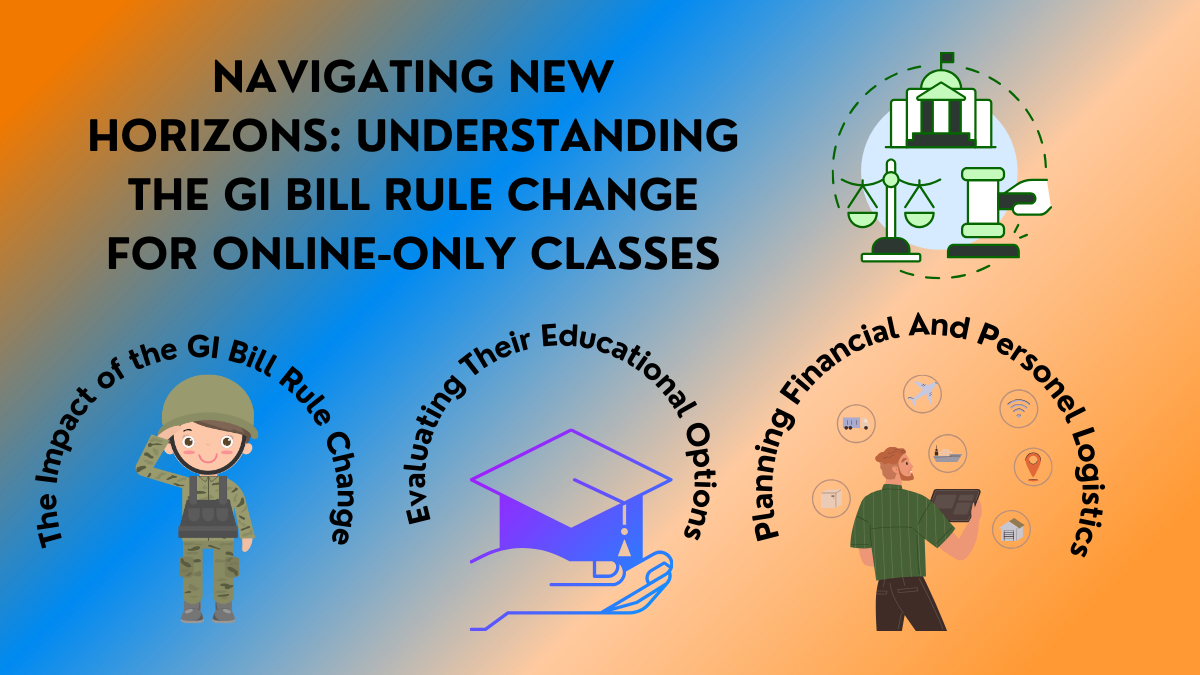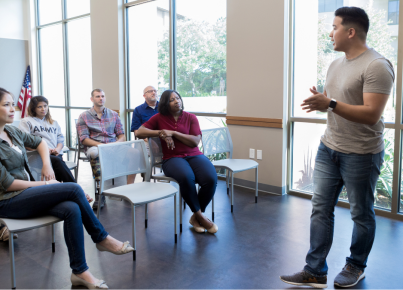The Post-9/11 GI Bill has remained a large foundation of educational support for those U.S. veterans who have done their time by allowing them access to higher education and training programs. As large legislative systems, they, of course, change over time to best fit the legal and societal framework. Over the recent years, a critical rule was altered in the Post-9/11 GI Bill which influences the veterans that wish to receive an education through online-only classes. For veterans and their guides to the educational data, such as World Veterans, it is of the essence to understand the new rules set by the GI Bill to maximize the education benefits received. The chapter will explain how the new rule on the GI Bill for online-only classes influences the achievement of the veteran and which strategies should be set in place to succeed.
The Impact of the GI Bill Rule Change
The idea of whether or not students in online-only programs need the same level of housing allowance as physically attending students has been a subject of the GI Bill for a long time; but historically, it seems to have been implemented the wrong way. Essentially, this means that the GI Bill used to support housing allowances for students who took every course from in-person classes as opposed to entirely online, and students were required to take at least one in-person class to qualify. Since online students are not driving to a university or renting apartments, it made financial compensation easier and fairer. All-time conditions have changed, however. Currently, the Department of Veterans Affairs declared that online students will have similar monthly housing allowances as attending students (Department of Veterans Affairs). This is extremely significant as the new rule recognizes online education’s increasing respect and consideration that living expenses are not always less for online students. This opportunity allows different veterans to take advantage of the education opportunities they choose to attend or need the most as individuals regardless of location.
Evaluating their educational options
As implemented, the new rules make housing allowances for online and in-person education relatively equal, therefore making it less critical for veterans to choose their schools based on education preferences solely. However, they should still make sure to investigate and compare some important factors such as educational quality, timetable flexibility, support from school specialists, and how appropriate their future career objectives are. For example, veterans can pursue enrollment at top universities through online programs.
Planning Financial And Personel Logistics
This adjustment in housing allowances means that veterans’ finances should not determine what form of education to pursue. The cost of living will remain relatively unchanged compared to the learning modality. Even as the housing allowance for online-only students increases, there may be other expenses such as the cost of internet service, computer equipment, and self-directed learning supplements, which might be less common in a physical classroom. Furthermore, other personal logistics such as space needed to study, the discipline needed for self-regulated learning, and the support and engagement from and with other students need to be accounted for on their own. While changes present new complexities, veterans and their counsel must be aware of other benefits and allowances available to them based on prior service. As the laws and rules change, World Veterans will continue to provide veterans with all of the information and assets required to help them take full advantage of these changes. Ultimately, creating custom resources and opportunities could alter the educational and professional trajectory of the country’s many living veterans. In conclusion, the GI Bill’s change in rules regarding online-only courses is a gateway to a brave new century of veteran educational possibilities. When the GI Bill was passed, few could have predicted that Americans society would be so technologically and socially integrated that one-tenth figured out a way to fill the space between their commitments and their dreams.
Reference
Department of Veterans Affairs. Post-9/11 GI Bill. https://www.benefits.va.gov/gibill/post911_gibill.as







You must be logged in to post a comment.